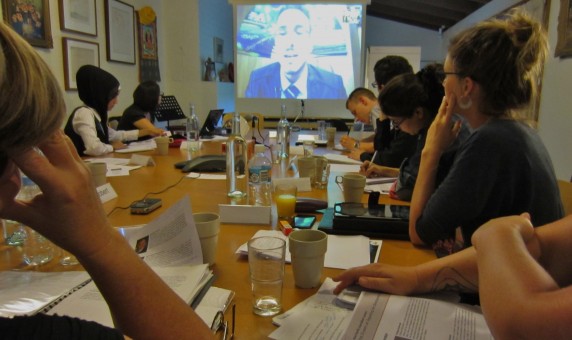Programs

eTour looks at Iraq development challenge after 10 years of conflict
March 2013
Eleven early-career journalists took a virtual tour to Iraq to investigate the massive health and other development challenges facing the country 10 years after the start of the US-led invasion on 19 March 2003.
The project, Iraq 10 Years On: reporting the development challenge, involved briefings and presentations at the APJC in Melbourne and a live video cross to Baghdad, where journalist Donna Mulhearn facilitated discussions with development experts, journalists and members of the Iraqi community.
Participants in the program also got a preview of video from David Bradbury’s upcoming documentary on the environmental and health impacts of chemical weapons left over from the war and from the earlier Saddam Hussein period.
Speakers pointed to the correlation between levels of depleted uranium and other toxic metals found in the environment and the increase in the number of birth defects, particularly in the areas of Basra and Fallujah where conflict was strongest.
Ahmed Hassin of Deakin University’s Centre for Citizenship and Globalisation said further disability in children was being caused by the high number of unexploded cluster ammunition and landmines which remain in the country. He said the majority of disabled people lived in poverty.
Development worker Salah Mohammed reported from Baghdad that people displaced by the war and earlier conflicts were not receiving proper sanitation, health or education services due largely to difficulties in tracking the movements of internally displaced people.